Broken heart syndrome is a condition in which intense emotional or physical stress can cause rapid and severe heart muscle weakness, called cardiomyopathy, frequently causing acute heart failure, lethal ventricular arrhythmias, and ventricular rupture. (Psora/ Causa occasionalis)
A broken heart is a term metaphor for the intense emotional, and sometimes physical stress, and dates back at least 3,000 years.
Takotsubo syndrome- Japanese- a kind of octopus’s trap (ja), because the left ventricle takes on a shape like a fishing pot.
- Stress cardiomyopathy
- Broken heart syndrome
- Takotsubo cardiomyopathy
- Apical ballooning syndrome
- Broken heart syndrome utilizes adrenaline and other hormones to temporarily stun heart cells (Psora)
- This stunning recovers very quickly, often within just a few days to a few weeks (Psora)
- There is no permanent damage to the cardiac tissue (Psora)
- The heart returns to normal within a few weeks with no permanent damage (Psora)
This potentially life threatening condition can occur subsequent to a variety of emotional stressors like-
- Extreme anger (Psora)
- Fear (Psora)
- Grief e.g. Death of a loved one (Psora/ Syphilis)
- Surprise (Psora)
It can also occur following several physical stressors to the body like-
- Difficulty in breathing as a result of severe asthma or emphysema (Psora/ Syphilis/ Sycosis)
- Seizure (Psora)
- Significant bleeding (Psora)
- Stroke (Psora)
- Arm pain (Psora)
- Chest pain (Psora)
- Dizziness (Psora)
- Nausea and vomiting (Psora)
- Palpitations (Psora)
- Shortness of breath (Psora)
- Sweating (Psora)
- Weakness (Psora)
The nearest match of broken heart syndrome is heart attack.
The following are dissimilarities and similarities between the two-
Difference between broken heart syndrome and heart attack
- Sudden onset of chest pain and shortness of breath after extreme emotional or physical stress
- ECG results are quite different from those of heart attack
- Blood tests negative or faintly positive for heart damage
- Echocardiography reveals enlarged and unusual movement of the lower left ventricle
- Coronary angiography or isotope study show no signs of blockages in the coronary arteries
- Contrary to heart attack, recovery time is quick, usually within days or weeks in broken heart syndrome
Similarities between broken heart syndrome and heart attack
- Congestive heart failure
- Low blood pressure
- Shock
- Clinical history
- Etiology
- ECG
- Echocardiography
- Coronary angiography
- Radio nucleotide scanning
Common remedies for Broken Heart Syndrome
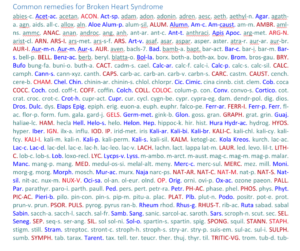
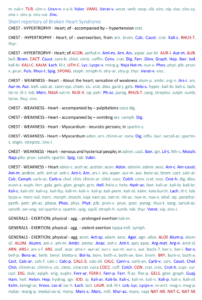
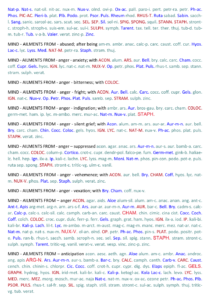
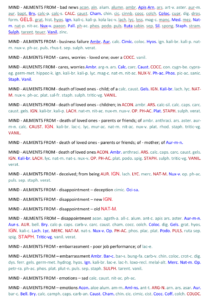
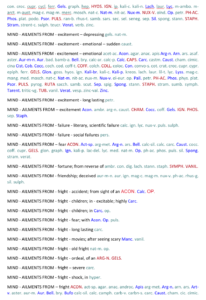
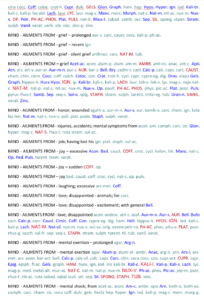
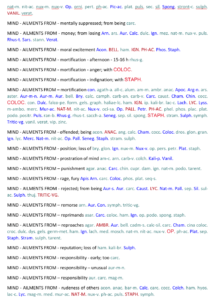
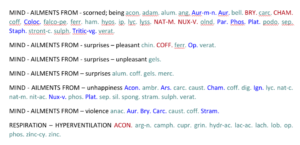
- Acute Right Heart Syndromes Principles of Critical Care, 4e
- Cardiomyopathy and Myocarditis > TAKOTSUBO CARDIOMYOPATHY Harrison’s Principles of Internal Medicine … The apical ballooning syndrome, or stress-induced cardiomyopathy, occurs typically in older women after sudden intense emotional or physical stress. The ventricle shows global ventricular dilation with basal contraction, forming the shape of the narrow-necked jar ( takotsubo ) used in Japan…
- Chapter 35. Myocarditis and Specific Cardiomyopathies > Tako-Tsubo Cardiomyopathy Hurst’s The Heart, 13e … to trap octopi. The clinical presentation is that of acute coronary ischemia generally preceded by a stressful emotional, physical, or psychological event such as the death of a loved one. This accounts for this syndrome’s other clinical titles, that is, broken heart syndrome or stress cardiomyopathy…
- Heart Disease > TAKO-TSUBO CARDIOMYOPATHY Current Medical Diagnosis & Treatment 2016
- Encyclopedia Homoeopathica
- Radar 10
About Author
Dr. Rajneesh Kumar Sharma MD (Homoeopathy)
Dr. Swati Vishnoi BHMS
Dr. Preetika Lakhera BHMS
Dr. Mohammad Tayyab Daud BHMS
Dr. Mohammad Tayyab Amir BHMS
